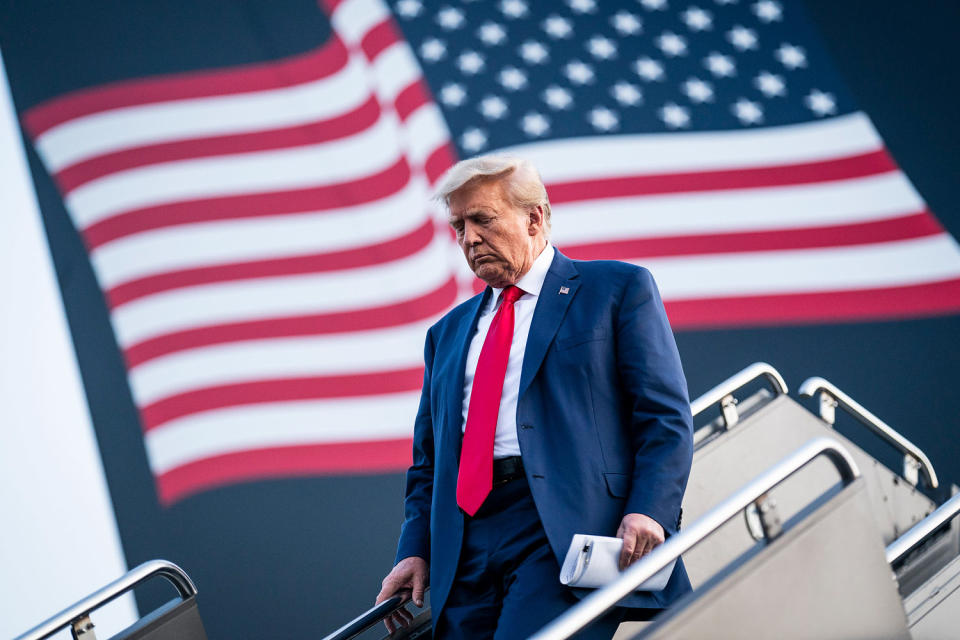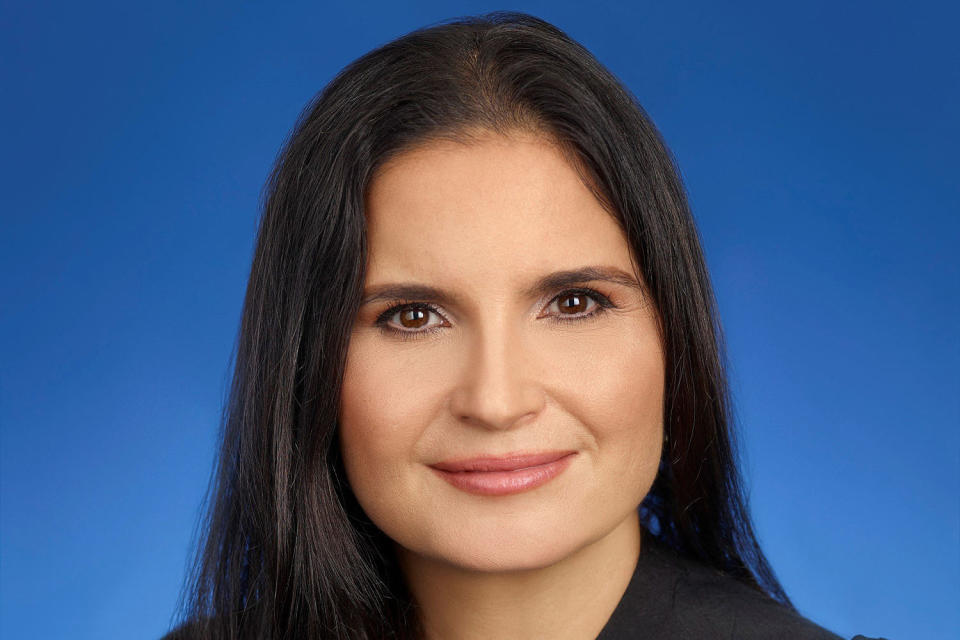Judge denies one of Trump's motions to dismiss classified documents case
- Oops!Something went wrong.Please try again later.
- Oops!Something went wrong.Please try again later.
- Oops!Something went wrong.Please try again later.
- Oops!Something went wrong.Please try again later.
FORT PIERCE, Fla. — The judge presiding over the federal criminal case involving former President Donald Trump's handling of classified documents denied one of his two motions to dismiss the case Thursday, saying the motion was premature.
U.S. District Judge Aileen Cannon found that Trump's argument — that the main statute prosecutors are using against him is unconstitutionally vague as it applies to presidents — is better-suited to be addressed later "in connection with jury-instruction briefing and/or other appropriate motions."
Cannon issued the ruling shortly after a daylong hearing on Trump's motions to toss the case, with Trump in attendance. Cannon, whom Trump nominated to the bench, made it clear she was skeptical of his attorneys' arguments on their other motion to dismiss, which contends that the Presidential Records Act bars his prosecution.
She said at the end of the hearing that she'd rule on the motions "promptly."
Trump’s legal team contended the bulk of the charges should be thrown out because of the 1978 law that governs the preservation of information during and following a presidency.
“It’s difficult to see how this gets you to the dismissal of an indictment,” Cannon said at one point.

Special counsel Jack Smith has called on Cannon to reject Trump’s claim that he should be shielded from prosecution because classified presidential records “can be transformed into ‘personal’” records by removing them from the White House. Trump has said that he designated the materials he took to Mar-a-Lago as personal records while still in office. A president's personal records are excluded from the act's requirements.
David Harbach, a prosecutor from Smith's office, told the judge, “The documents charged in the indictment are not personal records. Period. They are nowhere close to that.”
Smith was in court for the hearing, as well, and Trump eyed him during a break in the proceedings and again when they concluded. The former president, who's been animated while attending other court proceedings, appeared to listen intently to the arguments, often with his arms crossed. He focused mainly on the judge and occasionally whispered and passed notes to one of his attorneys, Todd Blanche. He sat stone-faced at one point when the judge clashed with Blanche over one of his arguments and called it a "red herring."
Cannon at times seemed more sympathetic to Trump's arguments and noted that no other former president has faced criminal charges related to the law. “There has never been a situation remotely similar to this one,” Jay Bratt of the special counsel's office responded.
Blanche argued that “presidents since George Washington have taken materials out of the White House” at “their own discretion,” but Cannon seemed skeptical of his arguments involving the Records Act.
The sides also argued the motion that the main statute used against Trump can’t be used against him.
Trump attorney Emil Bove told the judge that “the government cannot make decisions based on selective criteria and political bias” and that the indictment should be thrown out. He pointed to other instances in which presidents were found to have retained classified information and mentioned special counsel Robert Hur's decision not to charge President Joe Biden for classified material he had in his possession dating from his time in the Senate.
In his report explaining why he declined to charge Biden, Hur said that there were “clear” distinctions between the two cases and that unlike “the evidence involving Mr. Biden, the allegations set forth in the indictment of Mr. Trump, if proven, would present serious aggravating facts.”

Trump has pleaded not guilty to charges that he wrongfully held on to classified information after leaving the White House. Trump's co-defendants, Walt Nauta and Carlos De Oliveira, were in court Thursday, as well.
Their lawyers have sparred with the government over the timing of the trial, originally scheduled to begin May 20, which Cannon is expected to push back. The judge granted the defendant's request for more time but has not set a new trial date.
Trump is facing dozens of felony charges in the indictment, including willful retention of national defense information, false statements and representations, conspiracy to obstruct justice, withholding a document or record and corruptly concealing a document. He has denied all wrongdoing.
Trump’s co-defendants have also pleaded not guilty to the related charges against them. The special counsel accused Nauta, who served as Trump's valet and continued to work for him after leaving the White House, and De Oliveira, a Mar-a-Lago property manager, of seeking to erase security video at Mar-a-Lago after the Justice Department sought to obtain it. De Oliveira is also accused of making false statements to prosecutors.
Trump did not speak to reporters at the courthouse but took his social media platform, Truth Social, afterward to thank his supporters outside. “Big crowds in Fort Pierce, Florida, for the Biden induced Witch Hunt against his political opponent, ME! Thank you, a great honor to have you there," he wrote.
Trump has appeared in court more often in recent months, attending most of a trial in writer E. Jean Carroll’s second defamation case against him this year and several days of the monthslong civil fraud trial New York Attorney General Letitia James brought against him and his business late last year.
In a court filing asking for more time to respond to other outstanding motions in the documents case, Trump’s attorneys said they were preparing for the March 25 start date of his New York criminal trial.
Trump’s lawyers are also seeking to delay the trials until after the U.S. Supreme Court rules on his claims of presidential immunity because it could affect how the case proceeds.
This article was originally published on NBCNews.com

